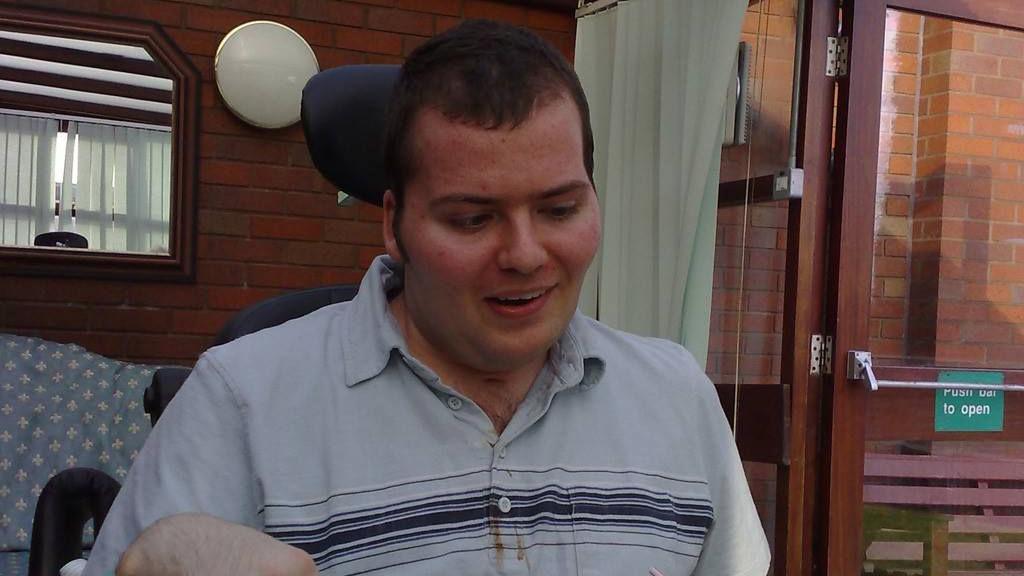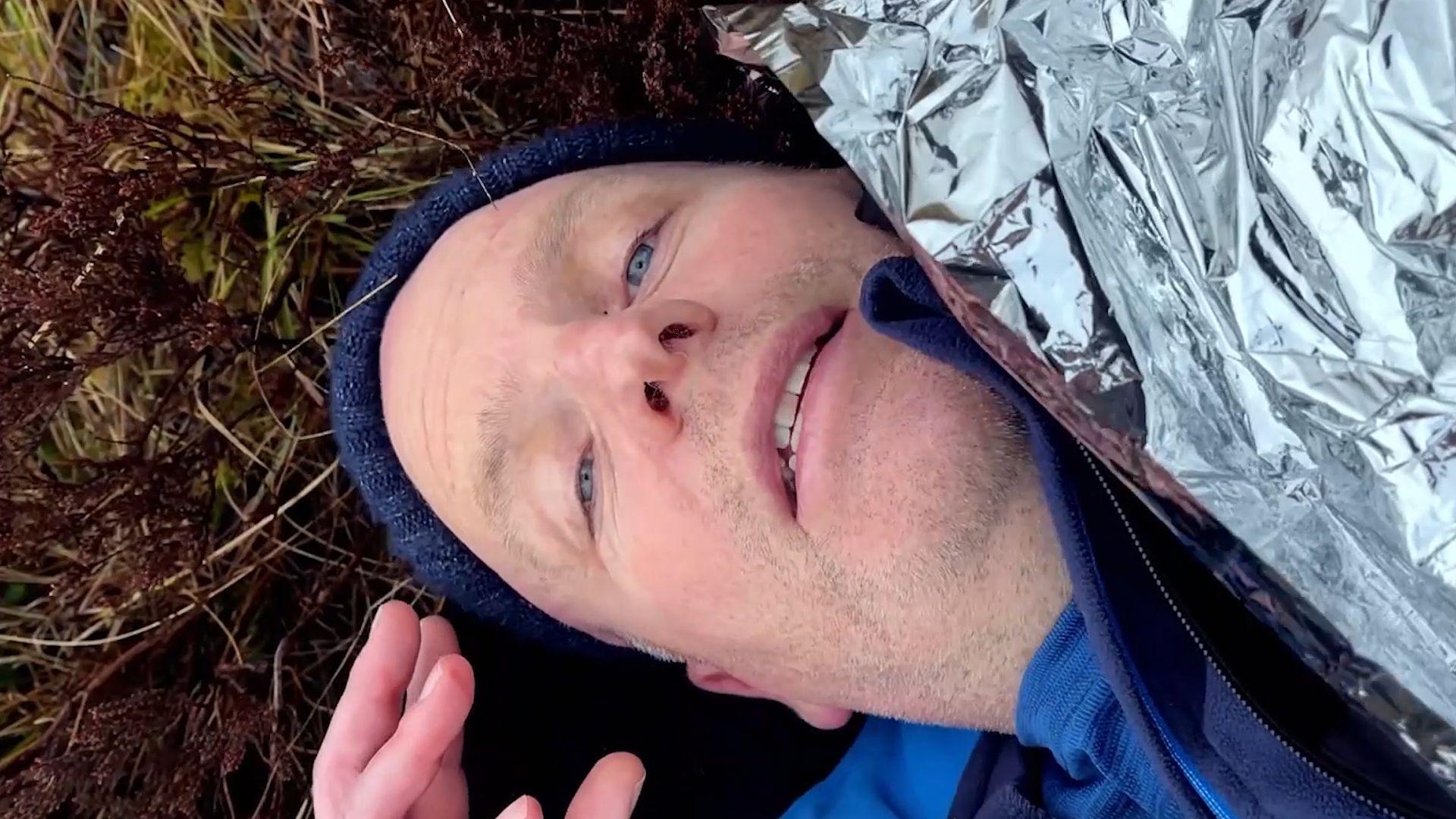'It felt like my brain was coming out of my skull'
Listen on BBC Sounds: Tom Shaw was 24 when he was diagnosed with a life-changing brain tumour
- Published
"It felt like my brain was coming out of my skull."
Tom Shaw was 24 when he began suffering from extreme headaches. But as a self-employed person who had recently bought a house he felt he "couldn't afford to be ill".
However, as his symptoms worsened Mr Shaw, from Stafford, visited the doctors on seven occasions before he was diagnosed with a brain tumour in 2007.
Now 41, the tumour has gone but it has left him unable to walk or speak. He has written a book based on his experiences and in the hope of encouraging people to not ignore early warning signs that something might be wrong.
He started writing a blog in 2010 but said he became disheartened when he realised not many people read it.
He decided to turn his story into a book - "Brain Tumours, John Bonham and Fat Pigeons", inspired by the people and experiences he encountered while in hospital, including a recurring hallucination where he thought there was a shrine to a John Bonham next to his bed.
"The book is a tale to stop other people from making the same mistakes," he said.
'Probably the end'
After feeling unwell for the entire duration of a holiday to Turkey he finally went to the doctor.
An MRI scan showed he had a low-grade hemangioblastoma, external, he was admitted to hospital and thought " this is it, it's probably the end".
"I was playing through the words 'we've found something' and thinking I should be reacting to this," he said.
The operation to remove the tumor, which took place at the Queen Elizabeth Hospital Birmingham, lasted 13 hours and left him in a wheelchair, unable to speak.

After his operation, Mr Shaw spent eight months recovering at The Haywood Hospital in Stoke
He was was later transferred to a specialist rehabilitation centre, Haywood Community Hospital in Stoke-on-Trent, where he spent eight months recovering from the surgery, as well as learning to speak again.
He said the process had been "incredibly frustrating" as he was also diagnosed with a condition called ataxia, which which affects coordination and mobility.
He added: "If you think that there is something abnormal there, don't ignore it, it won't go away".
Get in touch
Tell us which stories we should cover in Staffordshire
Follow BBC Stoke & Staffordshire on BBC Sounds, Facebook, external, X, external and Instagram, external.
Related topics
- Published6 January

- Published20 November 2024

- Published5 October 2022
